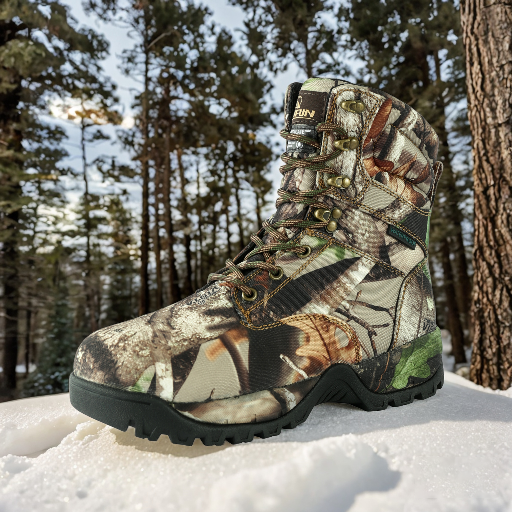Rubber boots have become the go-to footwear for many whitetail hunters, gaining popularity over the past decade. While they offer advantages, they may not be the perfect choice for every hunter and every terrain. In my experience hunting the challenging terrain of the big woods in the Appalachian mountain region of Pennsylvania, rubber boots fell short due to their lack of ankle support and breathability, resulting in uncomfortable hikes and sweaty feet that later turned icy on the stand. However, for hunters in farm country or around water, rubber boots prove to be an excellent choice. Here are key considerations to help you determine if rubber boots align with your needs.
**Scent Control:** Rubber boots excel in scent control, trapping odor and preventing the scent of your feet from escaping. Dr. Karl Miller, an expert on whitetail deer, emphasizes the superiority of clean rubber boots for scent control. Tucking your pant leg into the boot further reduces scent transfer to nearby vegetation. However, be cautious about walking on deer trails during entry and exit.
**Breathability:** A downside of rubber boots is their limited breathability. While they keep scent in, they also trap moisture, leading to sweaty feet during long walks and subsequent cold feet in low temperatures. Alternating socks may not fully alleviate this issue, as the wet boot liner persists.
**Waterproof:** Rubber boots unquestionably outshine other types when it comes to waterproofing. They perform exceptionally well in water, swampy areas, and creek crossings. Unlike leather or synthetic boots that require regular waterproof treatment, quality rubber boots remain waterproof for extended periods, making them a durable and reliable choice.
**Noise:** Rubber boots can produce squeaks on metal stands or saddle platforms, requiring additional measures for silencing. In terms of overall noise, rubber boots result in louder footsteps, especially in comparison to lighter and less bulky alternatives like leather or synthetic boots, which offer a quieter approach in certain situations.
**Conclusion:** Assessing the pros and cons of rubber hunting boots allows you to align your choice with your hunting style. For cold weather and short walks to the treestand, rubber boots excel. However, if you prefer mobile hunting in hill country, leather or synthetic boots may be more suitable. Ultimately, the decision rests on your priorities—comfort, scent control, and staying dry—tailored to your unique hunting style.

